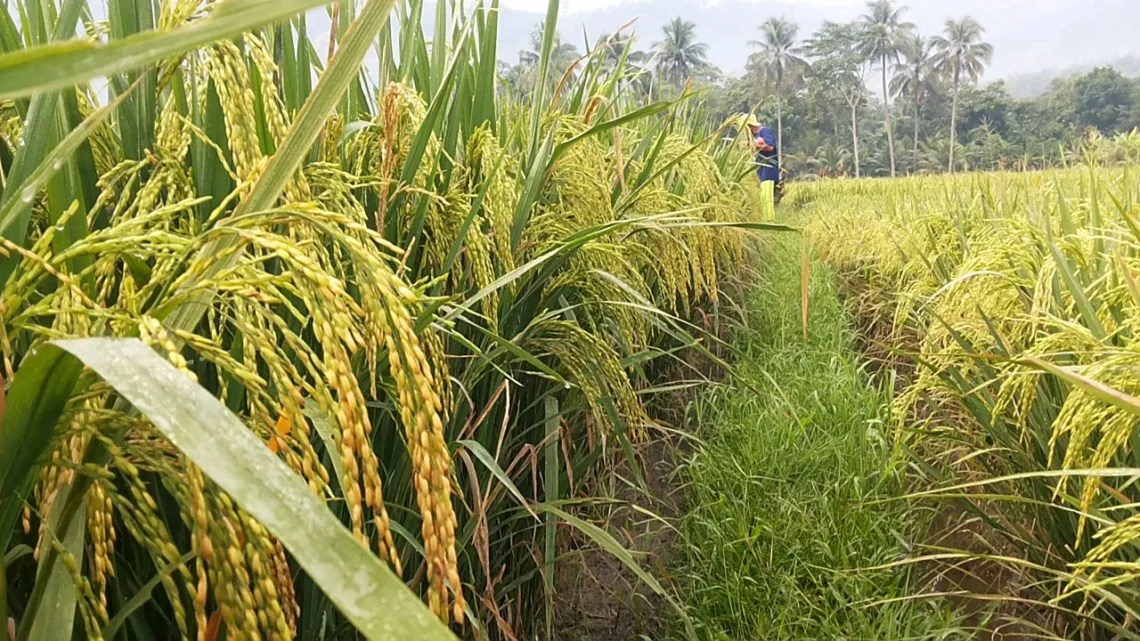Over the years Nigerian farmers continue to struggle with poor rice yield due to underline challenges of climate change, low soil fertility, pest and diseases as well as perennial flooding.
There is no doubt that these challenges have deprived Nigeria of economic benefits ranging from large quantities of rice production to accelerate food security and even potentials for exportation to improve foreign earnings.
Rice remains one of the most consumed staple in Nigeria with the importation bill projected to increase by 93% or N433. 97 billion by the year 2029.
Although statistics show that between January and July of 2022, Nigeria’s rice imports from the Thai Rice Exporters Association fell by 98.4% to 15 metric tonnes as against 957 metric tonnes imported during the corresponding period in 2021.
Experts have attribute the fall to the 2021 large rice production with which the pyramid were unvailed in January this year.
But due to the high devastating impact of the 2022 flooding that have destroyed significant large quantities of rice farms including the 4,500 hectares of Olam rice farm land in Nassarawa state worth over $15 million, Nigerian farmers need to quickly adopt new varieties which comes with better potential to withstand flood and improved yield for economic gains.
Harnessing such potentials by farmers through the adoption of new rice varieties means less production losses to disease and pest, better yields and more earnings with same or less efforts.
It is following the severe damages often caused by flood to the existing rice varieties, that the National Agricultural Seeds Council (NASC) has called on Nigerian farmers to adopt the new flood tolerant rice varieties to address yield losses.
The innovative FARO 66 and 67 are improved varieties which were earlier released in 2017 but since then, record show that the level of adoption by farmers is very low, perhaps due low popularisation of the varieties.
The improved varieties were developed by the Africa Rice and are suitable for planting in flood prone rice growing zones in Nigeria with potential to yield up to 80 and 10 times higher than their parent varieties.
Additionally, the varieties have been breed to withstand water submerge, reach maturity within 120-125 days with yield capacity of 6.6 and 6.7 tonnes per hectares respectively and are resistance to stem borers, bacteria leaf blight and African rice gall midge disease.
Their development came with technical support from the Korea-Africa Agriculture and Food Cooperation Initiative (KAFACI) currently running in 16 other African countries.
At a Farmers’ Field Day to showcase the innovation and breakthrough of the varieties to farmers in Sheda, Kwali area council recently, NASC director-general, Dr Olusegun Phillip Ojo said the only possible solution to tackle crop yields losses due to flooding remains the use of flood-tolerant varieties.
He said, “He said, “Over time, we have continued to witness the severe impact of flooding on rice production in the country, in 2012, when Nigeria experienced one of its worst flooding in decades rice production was reduced by over 22% and we are experiencing even more severe flooding situation, our environment is changing, the impact of global warming is being felt, the rainfall pattern is becoming difficult to predict, even for the experts and flooding is becoming a more re-occurrent even.
As we know, most of the popular rice varieties get severely damaged or killed within a week of severe flooding. We have seen yield losses resulting from flooding, we have seen prolonged growth duration and in the extreme case, we have seen total crop failure and loss as a result we are experiencing even more severe flooding situation, our environment is changing, the impact of global warming is being felt, the rainfall pattern is becoming difficult to predict, even for the experts and flooding is becoming a more re-occurrent event”.
“ The Only possible solution to tackle this issue is the use of flood-tolerant varieties. Therefore, we have brought you here today, to once again, showcase this innovation.
These varieties are submergence tolerance, they have higher yield potential and suitable growth duration and height, they have good grain quality and are moderately tolerant to iron toxicity. Under submergence, FARO 66 and FARO 67 can yield 80 and 10 times higher than its parents, FARO 52 and FARO 60 respectively. Even under non-submergence conditions, these varieties have shown superior yield potential when compared to their parents”, he added.





